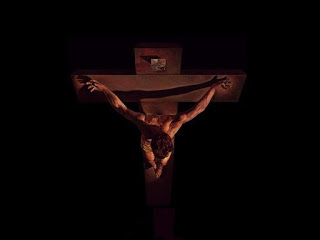THE MIRACLES OF JESUS
Several Old Testament prophets performed miracles
in their ministries. Moses, for example, poured water from a rock to sated the
people's thirst in the wilderness (Exodus17.1-7) and the prophet Elijah
resurrected the son of a widow (1 Kings17.7-24). However, no one has done as
many miracles as Jesus. On this, the commentators of the New International
Version Bible catalogued, in the gospels, 35 miracles that Jesus operated
during his performance in Israel. And they were not simple miracles, for they
range from the healing of lepers, paralyzed, blind to the resurrection of the
dead [1].
This aspect of Christ's action bothers many people
who, because of a rational view of the world, do not believe in miracles. For
Kant, for example, "passages of the Bible that seemed to transgress the
limits of rational credibility should be interpreted allegorically and not
literal, and would serve to provide incentives for what were, in essence, moral
ideals" [2]. That is, this German philosopher, in his work, nullified the
transcendent character of Christianity and reduced it to a religion that
preaches good morals. However, the Danish Christian Philosopher Kierkegaard
disagreed with Kant, as he understood the absence of rational proof" for
miracles as "necessary", since "Christianity is inherently
paradoxical and resistant to human reason" [3].
Miracles are changes in concrete reality, of
spiritual order, that violate the natural laws of the world and find no
explanation in human reason. They are evidence of the divinity of Christ that
shows that He had power over diseases (cures), spiritual beings of darkness
(exorcisms), on “physis”, that is, nature (walking on waters, calming
storms, multiplying breads) and over death (resurrection of dead people). I
also quote that Jesus Christ also had a power much more excellent than the
previous ones: the power to forgive sins (Matthew9:2,6).
Jesus was not a moralist and Christianity is not a
human building, a religion invented by man to bring great moral to humanity. It
is, before, God entering the world to restore in man his original condition of
perfection lost in the Fall. Thus, the miracles jesus performed were inevitable
because of his divine nature and compassion for the human being who was plunged
into suffering. John wrote that Jesus, raising his eyes and seeing the crowd
that followed him, was moved and decided to feed her what resulted in the first
multiplication of loaves (6.1-15).
Even after his death, Jesus continued to operate
miracles through the apostles and disciples. Acts chapter 3, for example, shows
Peter healing, in the name of Jesus, a crippled birth, which was always at the
door of the temple. Paul also, in Trôade, resurrected a young man of the name
Heutico (Acts20.7-12). Even today, in the scientific and technological society
in which we live, God's miracles happen in the lives of those who, immersed in
pain, suffering and anguish, place their trust in God and cry out for a
miracle.
But it would be a serious mistake to think that
Jesus Christ, the Son of God, came into the world to perform miracles. John
narrates, in his gospel, an episode in which He went to a tank named Bethesda
in Jerusalem, where many sick and invalid people were waiting for a miracle.
Seeing those people, He healed only one man and not all (5.1-15). The
Evangelist John always refers to the miracles of Jesus as "signs"
that point to something greater: The Kingdom of God. Jesus' miracles are
glimpses of the Kingdom he has come to implant. A kingdom where God “will wipe
every tear from their eyes. There will be no more death or mourning or crying
or pain, for the old order of things has passad away” (Revelation21.4).
Antônio Maia - M. Div.
Copyright
[1] Bíblia Nova Versão Internacional. São Paulo, Ed
Vida, p.1790
[2] GARDINER, Patrick. Kierkegaard. São Paulo,
Edições Loyola, p.31
[3] Idem



Comments
Post a Comment